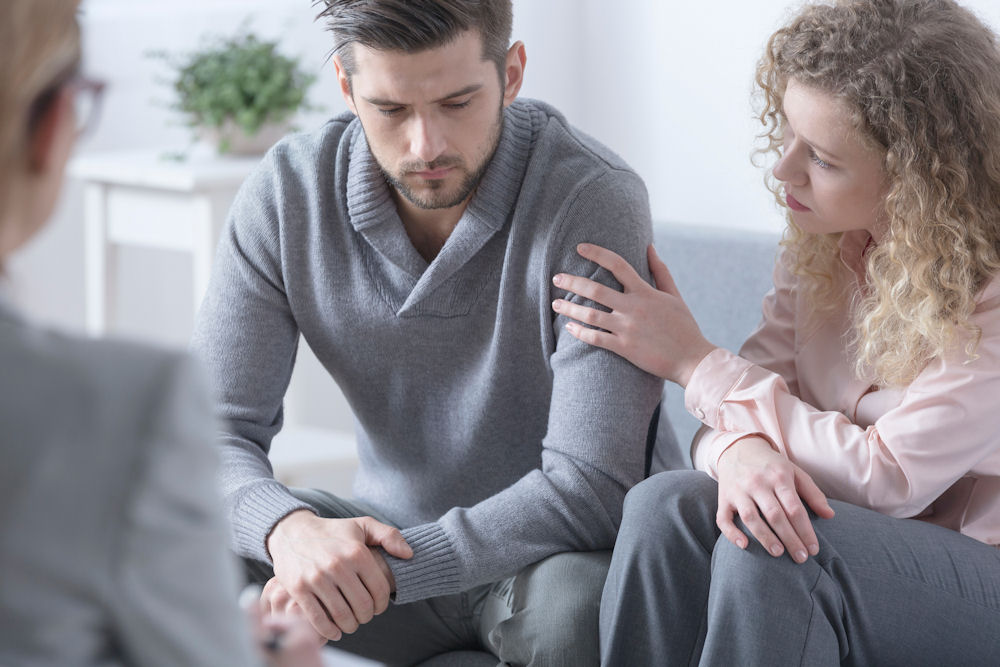AGAPE opiate detox centers in Port St Lucie felt the need to explain, “What happens during an opioid overdose?” This is due to the state of affairs with the deadly relationship between opiates and overdose. Currently, our nation is in the midst of an opioid crisis. As a result, opioids are one of the leading causes of death in America.
Opioids are a class of drugs that include the illegal drug, heroin as well as prescription drugs primarily used for pain relief. These drugs produce a high effect, and their potency depends on how fast-acting the drug is. As a result of the high they produce, they are extremely addictive. Once a person is addicted, unless they receive treatment, overdoses are likely.
Table of Contents
ToggleAGAPE OPIATE DETOX CENTER PORT ST LUCIE EXPLAINS CAUSES OF OPIOID OVERDOSE
At our Port St Lucie centers, we are dedicated to helping those struggling with opioid addiction. Common opiates causing overdose include prescription painkillers such as oxycodone and codeine, but also heroin—potentially leading to fatal consequences if taken in excessive doses or combined with alcohol or other substances. Opioids attach themselves onto the body’s natural opioid receptors, producing endorphins for relief from physical pain; however this process can become addictive within just seven days due abuse of a legal drug’s potency. In any case where an individual is suspected of overdosing on opioids – whether obtained legally or not – it is absolutely essential that emergency services be contacted right away at 911.
COMMON CAUSES OF OVERDOSE
Pain management can be a difficult journey, and sadly overdoses due to prescription drugs are all too common. While there is no universal overdose threshold, regardless of whether you’re taking illicit medicines or prescribed meds like Vicodin, OxyContinor Duragesic – an increase in dose beyond the recommended amount can have serious consequences. That’s why it cannot be stressed enough: if more pain relief is needed than expected from your current medication plan then get in touch with your physician before increasing the dosage yourself; risking possible life-threatening symptoms or even death as a result.
OUR OPIATE DETOX CENTER PORT ST LUCIE STAFF DEFINES DEPENDENCE VS ADDICTION
The staff at our opiate detox centers Port St Luce always explain the difference between alcohol and drug dependence and alcohol and drug addiction. Many people really don’t understand the difference. What’s The Difference? Drug dependence is a physical state in which a drug causes changes in one’s brain. These changes cause you to experience unpleasant effects when you stop using drugs. This triggers cravings for more drugs, even after long periods of abstinence. Some experts also use terms like dependence and addiction interchangeably. However, there is a distinction between drug dependence and addiction.
While drug dependence and addiction can both cause cravings for more drugs, they are different processes. When you have drug dependence, your body has changed to adapt to exposure to certain drugs over time. If you suddenly stop using these drugs or reduce your dosage too quickly, you’ll experience unpleasant withdrawal symptoms. Our drug rehabs in West Palm Beach centers explains why you get withdrawals further here. However, that does not mean you are addicted to a substance. Drug addiction involves compulsive drug use despite negative consequences. Even if someone continues taking a drug after it stops being pleasurable or causes bad side effects, they might still be addicted if they feel physically compelled to do so.
OPIATE WITHDRAWAL SYMPTOMS
In most cases, you can cure drug dependence without treating addiction. If you experience withdrawal symptoms when you stop taking a drug after having been on it for a long time. Your best option is to taper off slowly. This is one of many tools your doctor may use to help you overcome drug dependence and regain control over your life. However, if your cravings are so strong that they make it impossible to stop taking drugs by yourself. You may also need help from family and friends, then you likely have an addiction. Most likely you will need professional treatment. Drug dependence vs drug addiction – differences explained.
Many of our opiate detox center Port St Lucie clients used to subscribe to the misconception that dependence is interchangeable with addiction by definition. Dependence is described as the physical need to use a substance after habitual use for a period of time. Also, people who are dependent on opioids experience withdrawal symptoms if they cease their use. In order to avoid these symptoms, people will continually use the substance. Often, this can lead to the development of an addiction. Addiction, however, includes dependency as well as a compulsive and psychological need for the drug. Additionally, when someone is addicted, their drug of choice trumps all the consequences of their behavior. Typically, people who are addicted to a substance rely on the drug for psychological and physical relief.
WHAT IS OPIOID TOLERANCE?
The National Institute on Drug Abuse defines drug tolerance as, “A state in which an organism no longer responds to a drug. A higher dose is required to achieve the same effect”. With opioids, tolerance develops on a cellular level. This occurs when the substance binds to opioid receptors, triggering the release of the adenylate cyclase enzyme. After this occurs frequently, the body has trouble firing vital enzymes in the brain. As a result, an individual will need to take increased doses of the drug to achieve the desired effect.
When a person has to continually raise the number of opioids they use at a time, overdose becomes likely. The most dangerous aspect of opioid tolerance occurs when someone abstains from opioids and then begins to use them again. Often, people believe they can begin using the same amount of the drug as they did before. This makes it more likely for a person to take a lethal dose of opioids.
Once a person becomes dependent on opioids and continues to use them, they must increase their dosage in order to feel normal. This is because each time they use drugs, their body gets used to them, so it takes more and more of that drug to produce effects. Eventually, some people need several times more opioids than when they first started using them just to feel normal again. This is called tolerance, but it can lead very quickly to dependence and addiction. Once you are physically dependent on something, you will experience withdrawal symptoms if you stop taking it abruptly or your dosage goes down even slightly. The quicker you need a drug or amount of it after having not taken it for some time (like during detox), then the stronger your dependence was/is.
WHAT IS POLYDRUG USE?
One of the leading causes of overdose is polydrug use. Polydrug use is the act of combining different drugs to create a desired high. This is extremely dangerous due to the reactions that different substances have in your brain. Additionally, polydrug abuse amplifies the side effects of the substances a person is using. Therefore, any severe side effects that may occur while using opioids would become life-threatening. AGAPE detoxification centers know the process of detox. We are one of the best drug and alcohol detox centers in West Palm Beach options because of our experienced and educated staff.
For example, let’s take a look at combining opioids with the stimulant, cocaine. Since cocaine is a stimulant, it makes using larger doses of opioids easier. Large doses of opioids can result in respiratory failure. On the other hand, when a person combines two depressants such as opioids and alcohol, they face different life-threatening risks. Depressants lower a user’s heart rate and cause respiratory depression. When two of these substances are combined, the risk rises exponentially.
Multiple substances are involved when you use opioids (such as heroin, oxycodone, or fentanyl) in combination with other drugs. When using one substance alone, people typically feel effects for a limited amount of time. By using multiple substances at once, however, you have a significantly increased risk of overdose and death because your body can’t tell which chemicals to prioritize. In fact, mixing opioids with certain drugs have such a strong potential for harm that it’s never safe to do so. Certain prescription opioids are only meant to be used in combination with other drugs: Combination therapy is prescribed by doctors precisely because they believe it’s safer than opioid use alone.
OPIATE DETOX CENTERS IN PORT ST. LUCIE EXPLAINS THE SIGNS AND SYMPTOMS OF OPIOID OVERDOSE
The staff at our opiate detox centers Port St Lucie location is up to date with overdose in the United States. According to research conducted by the Centers for Diease Control and Prevention (CDC) 63,632 people died in 2016 from drug overdoses. Out of these 63,632 people, 66% died from an opioid overdose in particular. While these numbers are alarmingly high, there are even more people who are addicted to opioids. Many of our friends, family members, and ourselves are currently struggling with opioid addiction. When someone is overdosing, they may be unable to realize it. During an opioid overdose, an individual will lose consciousness and have difficulty breathing. Additionally, without medical intervention, people often die from opioid overdoses. Here are some of the visible warning signs of someone experiencing an opioid overdose:
- Blue lips, fingers, or nails
- Discolored tongue
- Pale face and clammy skin
- Pinpointed pupils
- Unconsciousness
- No response to pain
Additional symptoms of opioid overdose:
- Vomiting
- Swelling of the face, tongue, lips, throat, or extremities
- Low blood pressure or slow pulse
- Difficulty breathing
- Delirium or disorientation
- Muscle spasms
- Extreme drowsiness
OPIOID DRUG DETOX PORT ST LUCIE EXPLAINS, “HOW TO RESPOND TO AN OPIOID OVERDOSE?”
Our opiate detox center Port St Lucie staff has the education and experience to save lives from overdose. We know many are unaware of what to so when someone overdoses. Unfortunately, it is highly unlikely for a person to be able to help themselves during an overdose. If it’s possible for you to experience an overdose, it is important to educate those around you on how to properly respond. If you are aware that your loved one is struggling with opioid addiction, there are FDA-approved lifesaving drugs available.
The FDA has given approval to three opioid overdose reversal drugs, also known as naloxone: Evzio, a fast-acting injectable form; Narcan, a nasal spray; and an auto-injector called Evzio. Not all healthcare providers are equipped with these medications, so they may refer you to one of more than 12,000 community programs that have been trained to use naloxone on-site. If you or someone you know is in danger of overdosing on opioids or any other substance, such as alcohol or illicit drugs like heroin or cocaine, call 911 immediately for help. When paramedics arrive on the scene and assess your condition, they may administer naloxone if necessary.
RESPONDING TO OPIATE DETOX
While naloxone is effective in reversing many types of opioid overdoses, it’s important to understand that some individuals may still require advanced medical attention. If someone has overdosed on a highly potent synthetic opioid or has taken a dangerously high dose of heroin, for example, it’s possible that multiple doses of naloxone will be needed before he or she can start breathing normally again. Those who have overdosed on benzodiazepines like Xanax are also at risk for respiratory failure even after receiving naloxone because these drugs depress respiration more than opioids do. For every drug overdose, seek immediate medical care if your loved one is unable to regain consciousness within 10 minutes or shows other signs of distress.
However, the first thing you should do is call 911. Overdoses typically take several minutes to a couple of hours to turn fatal. If medical intervention happens in a timely manner, your loved one may recover. After calling 911, you can use Naloxone if you have it. If you do not have Naloxone and your loved one is not breathing, begin to administer CPR while you wait for paramedics to arrive. Once the paramedics get there, they will take every measure possible to stabilize your loved one.
WHERE ARE THE BEST OPIATE DETOX CENTERS IN PORT ST LUCIE?
AGAPE opiate detox centers in Port St Lucie is one best places to get drug and alcohol addiction treatment. Our drug rehabs in Fort Lauderdale provide service to West Palm Beach, Miami, and from across the US. The best way to prevent an opioid overdose is to receive addiction treatment – before it’s too late. Opioid addiction is difficult to overcome without medical attention due to the withdrawal side effects that occur. Opiate overdose is extremely serious. It is only a matter of time before you or your loved one are in this situation.
Getting professional help is critical in saving lives. We are losing more than 150 lives per day to opioid overdose. The good news is there is help available. You can get your life back. If you or a loved one is struggling with opioid addiction, it is vital that you seek treatment. Begin your recovery with a professionally licensed rehabilitation center today! Give us a call now at (855) 948-2936. We are available 24/7 and can save your life.

Stephanie Robilio is an accomplished Clinical Director at Agape Behavioral Healthcare. With a Master of Social Work degree, LCSW license, and extensive training in Rapid Resolution Therapy under her belt, she brings a wealth of expertise to her role. Her unique combination of education and experience allows her to provide exceptional care to clients and lead her team with confidence. Stephanie’s joy comes from witnessing the moments when her patients creatively connect the dots and bravely move toward reclaiming their power. Her purpose is to help individuals understand their past so they can create a future full of hope, growth, and success. Stephanie attributes a large portion of her success to the supportive culture and strong sense of community fostered by the Agape team.





